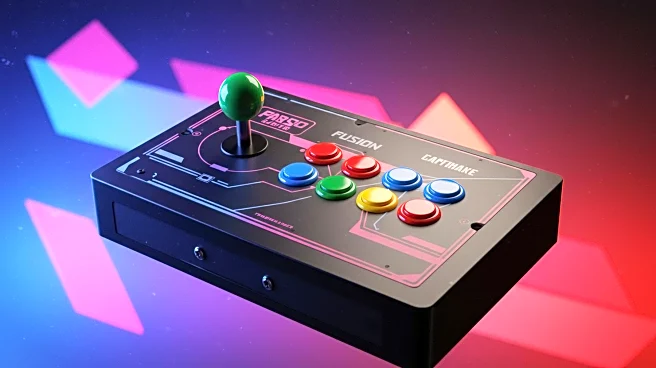What's Happening?
Fighting games have long been celebrated for their immersive soundtracks, which play a crucial role in enhancing the gaming experience. These soundtracks are not just background music; they are integral to the storytelling and emotional engagement of the games. The music in fighting games often draws from a variety of genres, including EDM, hip-hop, and hardcore, creating a dynamic and engaging atmosphere for players and spectators alike. Popular titles like Street Fighter, Tekken, and Mortal Kombat are known for their memorable tracks that accompany intense battles, adding to the excitement and energy of the gameplay. The soundtracks are designed to get players battle-ready and to enhance the viewing experience for audiences, whether they are watching from home or at live tournaments.
Why It's Important?
The significance of fighting game soundtracks extends beyond the gaming community, influencing broader cultural and entertainment landscapes. These soundtracks contribute to the games' popularity and longevity, attracting both players and spectators. The music helps to create a shared experience among fans, fostering a sense of community and excitement. Additionally, the soundtracks often feature collaborations with well-known artists and composers, further elevating their status in the music industry. The impact of these soundtracks is evident in their use in DJ sets and live performances, highlighting their appeal and versatility. As the gaming industry continues to grow, the role of music in enhancing the gaming experience and its cultural influence is likely to expand.
What's Next?
As fighting games continue to evolve, their soundtracks are expected to play an even more significant role in shaping the gaming experience. Developers may explore new musical styles and collaborations to keep the soundtracks fresh and engaging. The integration of music with other forms of media, such as live performances and streaming events, could further enhance the cultural impact of these soundtracks. Additionally, as the gaming community becomes more diverse, there may be opportunities to incorporate a wider range of musical influences, reflecting the global nature of the gaming audience.
Beyond the Headlines
The cultural impact of fighting game soundtracks also raises questions about the intersection of music and technology. As technology advances, there may be new opportunities to create more immersive and interactive sound experiences in games. This could include adaptive soundtracks that change based on player actions or preferences, offering a personalized gaming experience. Furthermore, the collaboration between game developers and musicians could lead to innovative approaches to music production and distribution, influencing the broader music industry.









